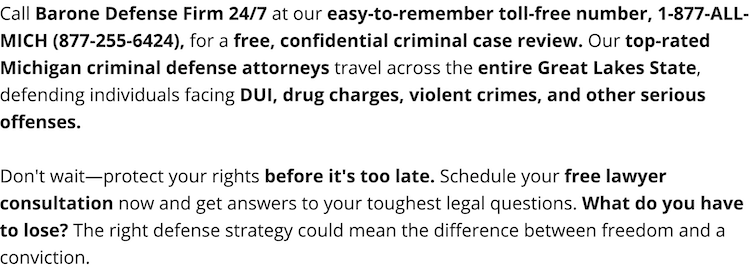Interstate Commerce and Insurance Business Fraud
The insurance industry plays a large role in the American economy. Every day, millions of dollars change hands through the payment of premiums, the filing of claims, and the issuance of money for losses.
As a result, the U.S. government takes a special interest in ensuring that the people who are employed at these companies act in an ethical manner. Any allegation that a person commits fraud or embezzles funds while representing these companies is a serious matter.
If you are facing such charges yourself, a Michigan interstate commerce and insurance business fraud lawyer may be able to help. If retained, a qualified attorney could help you understand the complex federal insurance fraud laws and develop defense strategies designed to protect your rights in United States District Court.
The Legal Basis for Commerce and Insurance Business Fraud Charges
The power of the federal government to enact laws and statutes is strictly limited by the Constitution. However, the Constitution's Commerce Clause does give Congress the power to pass laws that affect and control interstate commerce. Accordingly, Congress can pass laws to punish people who commit crimes that affect interstate commerce.
One resulting set of laws punishes insurance professionals who commit fraud. Specifically, 18 U.S.C. §1033 states that any person who is engaged in the insurance business cannot knowingly make any false statement or intentionally overvalue any land, security, or property. Since insurance companies are so ingrained in the economy of the entire country, most instances of insurance fraud fall under this statute.
For example, if an insurance adjuster responds to a house fire, they are supposed to make a list of all lost property and its monetary value. If that adjuster makes an agreement with the homeowner to overvalue the home or claim property that did not exist as a loss, it would be a textbook example of insurance business fraud.
The penalties for a violation of this statute are severe. These are always felony-level charges that can result in a maximum of 10 years imprisonment. However, if the fraud results in the insurance company going bankrupt, the associated penalty can increase to 15 years imprisonment.
What Other Activities does the Statute Punish?
While 18 U.S.C. §1033 is mainly concerned with punishing insurance agents who commit fraud, this statute also addresses other criminal behavior related to the insurance industry. For example:
- Subsection (b) addresses willful embezzlement of the funds or premiums of any customer or insurance company
- Subsection (c) addresses insurance employees or officers who knowingly make false entries into any book, report, or ledger relating to that company's business with the intent to deceive an agency concerning the solvency of the business
- Subsection (d) addresses people who attempt to coerce, intimidate, or impede any administration of the law by the government
A conviction under any of these subsections is a felony that can result in a maximum penalty of 10 years imprisonment. Like other cases an interstate commerce and insurance business fraud lawyer in Michigan might handle, the punishment for these crimes can be increased to 15 years under certain circumstances.
Talk to a Michigan Interstate Commerce and Insurance Business Fraud Attorney Today
Allegations of interstate commerce and insurance business fraud are complex matters. These charges can involve lengthy government investigations and piles of paperwork. Defendants in these cases can quickly become overwhelmed with information and the complicated legal issues in play, which makes working with an experienced attorney who has the resources to handle their case all the more important.
A Michigan interstate commerce and insurance business fraud lawyer could provide a powerful advantage for you in your case. By working to examine every part of the prosecution's case, file motions in court to exclude any illegally obtained evidence, and present a defense designed to create reasonable doubt in the minds of juries, they could fight on your behalf and defend your best interests. Call today to learn more
 Barone Defense Firm Home
Barone Defense Firm Home




















